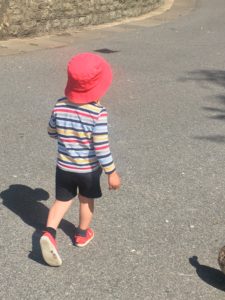When adults encounter problems in life, most people deny that it has anything to do with childhood. During childhood, the most important programs of perception, relationships, emotions and actions are learnt, which are then replayed automatically during adulthood.
If one child grows up in a society with right-hand traffic and another in a society with left-hand traffic, they each cannot use the other’s programs in the their respective countries without putting themselves and others at risk. Stress programmes, ideas about the workings of relationships, conflict resolution or the meaning of life work in similar ways.
In free societies, we have to understand, negotiate and agree upon each other’s programmes during daily life. Where this works, we can life together well. Where it doesn’t, illness, violence, accidents, arguments and strokes of fate take hold.
For thousands of years, dictatorships and religions have formed the idea to standardise learning of childhood programmes in order to enable control of these differences and the complex management of life during adulthood.
It is assumed that a standardised human makes coexistence easier. In a power- hungry world, it is almost unthinkable that each individual citizen takes responsibility for their actions and their programmes. However, there are many reasons for taking responsibility individually. In spite of the best diagnostics, a doctor cannot feel how ill a person feels. A politician cannot sense the unhappy and depressed reaction of people to their measures. A chef cannot taste if their guest enjoys a meal, an employer cannot decide when employees are out of their depth and a lover can only somewhat feel whether their desire is shared by their partner.
We will always need to communicate our perceptions if we really want to understand each other. We will never feel the same as everyone else, even though this would make life easier for our politicians, religious leaders, employers, military, police and lovers. Would it not make more sense to finally accept that we are different beings with different programmes? This way, we could respect our own programmes as well as those of our fellow human beings. And we could re-learn our programmes when they no longer fit our life. Wouldn’t it make more sense to finally get to know our learnt programmes and to swap notes? Is it not much more interesting to understand each other’s programmes instead of making us all the same?
I am wishing us all a lot of fun with exploring, testing and changing those programmes saved on our brains’ hard drives.
Gertrud Müller

